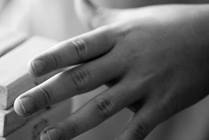Search Results
Viewing: 241-250 of 1460 | All
Article
Birth Control (Contraceptive) Options
Birth control is safe, easy to use, and has few side effects. Finding the right method for you can help you prevent pregnancy until you want to become pregnant.
Article
Burns: Nutrition
Your child is being treated for a burn and needs good nutrition to help him or her heal. Your child’s body uses a lot of extra energy as it works to heal the skin. His daily nutrition is very important.
Article
Food Allergy and Parenting
Parenting a child with food allergies can be tough. You have watched your child’s food and surroundings from an early age. You have also worked hard to speak to others, such as family, friends, and your child’s school, about keeping them safe from their allergen(s).
Article
Urology Biofeedback Therapy
Biofeedback helps your child understand how their body works. It teaches them how to control parts of their body they do not think about being able to control.
Article
Anorectal Manometry
Anal manometry is a test to see how well the internal and external sphincters of the anus and the pelvic floor are working.
Article
Glucose Tolerance Test Collection Guidelines
Use this Helping Hand to prepare for your child's outpatient glucose tolerance test.
Article
Mepilex Ag Dressing
Mepilex® Ag is a soft spongey grey foam pad that has silver within it. The foam dressing (bandage) shields the wound and the silver helps to kill bacteria. This protects the wound from getting an infection.
Article
Medicine: Proper Disposal
Dispose of various medications correctly with help from these instructions.

Condition
Hives
In this Helping Hand™ we will discuss the causes and treatment of hives, as well as how to prevent them and when to seek help from a doctor.
